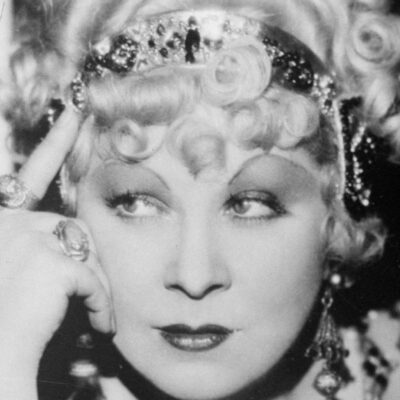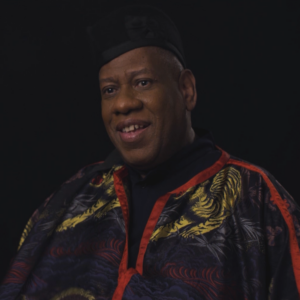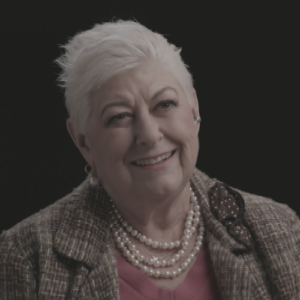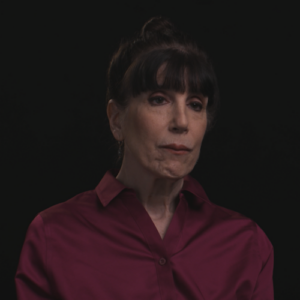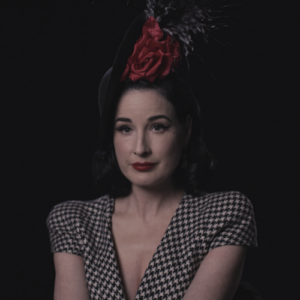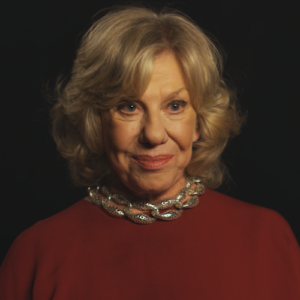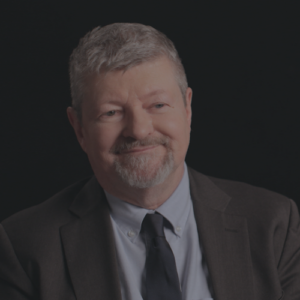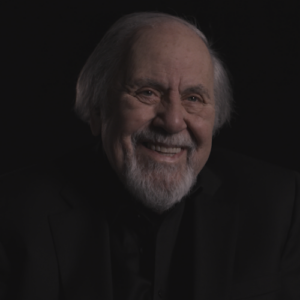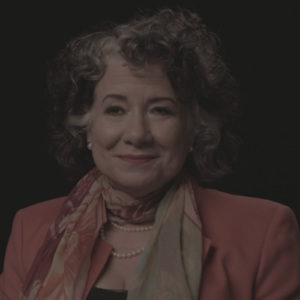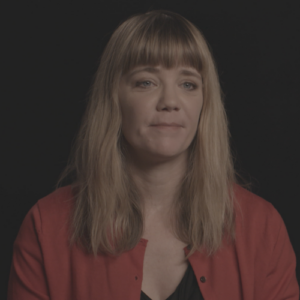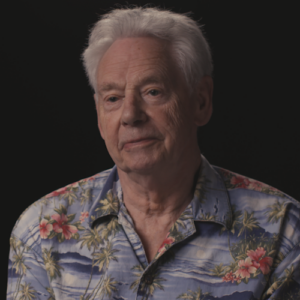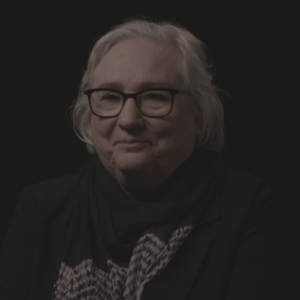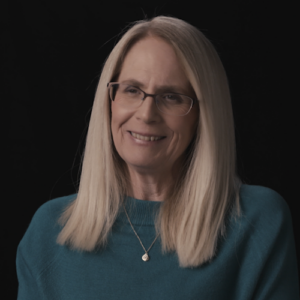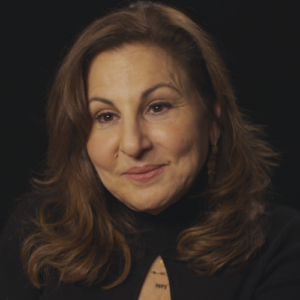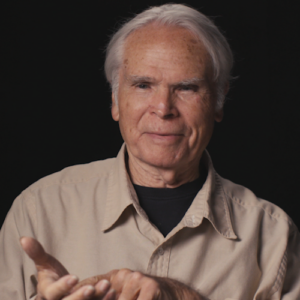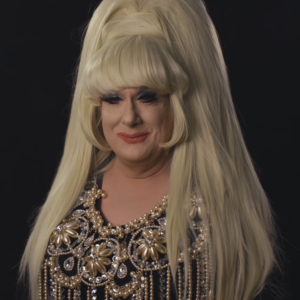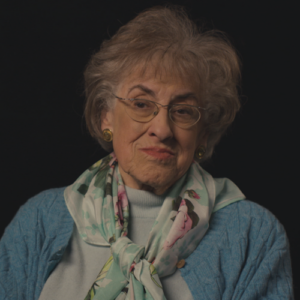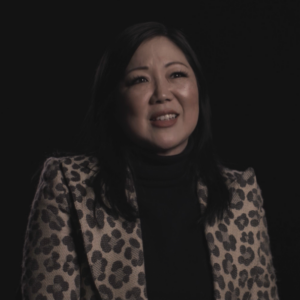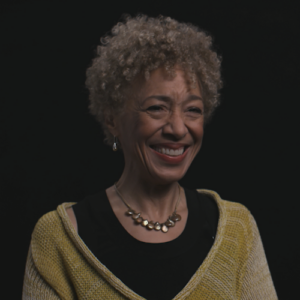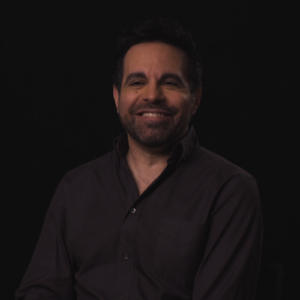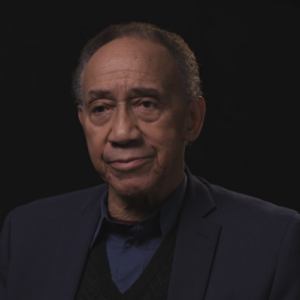Emily Nussbaum: It was striking me that a lot of her delivery is this stand up like delivery like she has. She has a character. She has a persona. And she’s doing this thing that is incredibly recognizable and pretty much everyone knows and does, even if they haven’t actually seen her. Like they know the sound of the sort of husky insinuating thing combined with this great timing and the sort of button bump. Like that whole model of it is so iconic that it seeps into the culture everywhere, even if you don’t know the origins of it.
Interviewer: Yeah, I mean, how would you describe your to like a person who’s never heard of her?
Emily Nussbaum: A confident, lacquered insinuating arch kind of over-the-top, horny, funny and in control?
Interviewer: You know, it’s so funny. We’ve done like 30 interviews for this, and no one has yet used the word horny.
Emily Nussbaum: Literally, the thing about her, she’s constantly coming on to everyone she meets. I mean, again, from the amount that I’ve seen of her stuff is what she’s known for is being a, you know, sort of a sex comic, but also, you know, this kind of have this this superpower of open desire and a woman saying what she wants and going and getting it. And any little put down that someone puts in her way, she just kind of smirks at and brushes off. So the whole thing seems to be about her wanting to get into bed, being very good at it, knowing that, you know, like that’s the power of what she’s doing.
Interviewer: But is but is that kind of an act pushing forward ideas about female? What is it doing to ideas about female identity?
Emily Nussbaum: Well, one of the main things is that she’s not self-deprecating. I mean, I think this is one of the most straightforward things that makes her act different than a lot of other acts. Not everyone. She wasn’t completely alone in that. There are other people who do various kinds of forceful self-presentation. I can think of women in the movies who do things that are basically self-confident, don’t put themselves down. But the self-confident seductress, who is also powerful and glamorous and kind of amused at anybody who would say no to her does seem like something specific and bolder.
Interviewer: I mean, do you think a character like that in the movies or on TV can push forward ideas about female identity?
Emily Nussbaum: I mean, to some extent, yes. I think part of the reason that she ends up feeling so inspiring is actually the way in which she models something that in a different context would seem like narcissism as an incredibly appealing self-confidence that dominates the room and puts the person in control. There’s a lot of portraits of female sexuality that are not very much about women being in control and straightforward about what they want in that way. And I do think that that presentation of a predator, natural confidence in her own looks, in her own skills, in her ability to get her way is itself a kind of powerful image for women and funny and outrageous. And frankly, the fact that she’s cartoonish is part of the appeal because there isn’t some desire. It’s not as though the the esthetic context of what she’s doing is supposed to be this gritty, realistic portrait of a woman who likes sex and is confident like it’s a it’s an arch. I mean, she she seems literally like a cartoon at times. Like she’s embracing that idea that it’s this larger in life thing. But I think that that’s what’s inspiring about it, because it’s like someone who creates a very brightly lit, starkly outlined vision of what that kind of confidence would be is an inspiring kind of almost superhero figure to other people who just have more ordinary lives and desires. It’s this sort of wish fulfillment of a certain kind of hyper feminine grandiosity in a positive way, not a self-mocking or a lurid or gross way.
Interviewer: So it’s funny, You know, this is a cartoon of a woman. Could this be a real woman? Like is the joke that this would never be a real woman?
Emily Nussbaum: Well, I don’t know. It’s not as though there aren’t actually highly self-confident, super glamorous, you know, hyper feminine women who like sex. There are. But. But, I mean, the context, at least from what I’ve seen of Mae West’s routines, is about these little bits of her seducing somebody or her resisting somebody’s resistance to her. I mean, their routines, they’re like vaudeville ish. They’re a mixture of comedy and and a sexy kind of humor. So I don’t know whether the realism really has any bearing on it, like, you know. But of course, any time that there’s some kind of an iconic portrait of any sort, people imitate that. So, I mean, in a lot of ways it is. You know, when I was growing up, there was Madonna who was doing part of the the version of the very sexually powerful, confident she was doing what it was called at the time. What was the Madonna thing? She was called a material girl thing. Yeah. I mean, when when I was in high school, Madonna was doing the Material Girl thing. And I remember people being directly inspired by it and doing a kind of Madonna wannabe thing. And it was this positive version of female promiscuity, desire, the embrace of one’s feminine power. And so I think people imitate stuff like that. I mean, Mae West is part of that tradition of glamorous, hyper feminine models. Dolly Parton is the same. I mean, there’s this thing about the decorative qualities that she has, the lacquered thing, the embrace of makeup, and the idea that your femininity is a kind of theater that you enjoy rather than something that you’re just putting on in order to look normal and be safe in the world and, you know, have people like you. It’s actually a kind of creative act and also an act of dominance.
Interviewer: So Madonna is an interesting parallel here. You know, she came out with the book Sex in 1991. Yes. I was so shocked. And it was banned in some countries. I mean.
Emily Nussbaum: Well, it was wrapped in plastic.
Interviewer: Yeah. But Mae West wrote a play called Sex and Necessary Sex. And sometimes when I tell people this, they’re like, shocked. Like, we have this idea that sex and women is like this new thing. And can you speak a little to that? Like the idea that nobody really knows about this woman and her path and how what that says about us?
Emily Nussbaum: Well, I mean, I do think that there’s this tendency that people have to portray any previous period as a bunch of uptight, no nothings who never got laid and didn’t know anything about sex. And obviously that’s not true. And actually it’s funny because there’s this even within my own lifetime, I feel like when people look back, even a few decades, it ends up being cartoon ized that way. But the thing that I think is really minor about her is actually not the sex thing. There’s always been some glamorous female sex kind of soaked scandal star. Sometimes it was somebody who was literally caught up in a scandal. Sometimes it was a glamorous actress. I mean, Mae West is part of that tradition. But what seems so modern is that she ate up the censorship and turned it into a form of publicity. Like that’s something that’s very modern, is the idea of her as being like, I’m an influencer, you know, I’m going to deliberately go to jail so that I will get more attention. I mean, that’s the other thing that somebody like that wants is attention and control, but not pathologizing those things being like, I enjoy attention. I have a right to attention and I desire things. It’s not just that she wants to be looked at, but at the same time, like in the case of publicizing her own art, that’s what she was willing to you know, she she she seems to have relished that, the kind of being a tabloid phenomenon.
Interviewer: You know, because one of the major things about her that she wrote and created her own characters, her own cereal, which was pretty, you know, unique at that time. Can you just talk about how vital that is and that in terms of women in entertainment, you know, actually creating the material and, you know, you can reference her as somebody who who did this early on.
Emily Nussbaum: I mean, it’s important for anybody, including women, to have control of the art they do, which includes control of what they’re expressing, control of the money that they get for it, the ability to make weird choices that don’t get knocked down by a system that just wants to smooth things out, make everything likable and positive. And I do think that she’s part of that tradition. It’s funny because there’s this whole historical issue of female entrepreneurial, artistic self-presentation. I mean, actually, Lucille Ball, who I think her the character she did, is extremely different than Mae West. I mean, you could contrast them there, but she was also a person who owned her show, owned the reruns, created a character that was a version of her and her glamor, had an iconic make up style and all of those kinds of things in kind of imprinted herself. And there’s a bunch of people who did things like this. And so I do think that that’s she’s part of that tradition.
Interviewer: And she’s also part of the comedy tradition. Yes. So if we think about women in comedy, you know, comedy is something that allows them to express intelligence. Right. And express a point of view, a personality. Can you talk about comedy and feminism, as it were, or just pushing forward? There’s a couple of things.
Emily Nussbaum: One of the when I was looking at Mae Mae West clips, one of the main things that it reminded me of was, interestingly, was Moms Moms Mabley, Moms Mabley, who was a major African-American star. She was she had enormous crowds. I mean, she was a very big star as Mae West was a big star. And she also did a comedy of older female Horniness. But she did it in a really different way. She dressed she in real life, she was actually a very handsome, dapper, butch woman who had a lot of girlfriends that was backstage on stage. She looked like an old woman who was deliberately making her. Herself look grotesque. But interestingly, like she did very sexually graphic routines in the same way that Mae West did. They’re almost mirrors of one another in that way. But the reason she reminds me of Mae West is because both of them did comedy that wasn’t about putting down their desire. It was about asserting it and kind of aggressively pushing it on the crowd. Like Moms Mabley also did routines that were basically about being disgusted with older men because they couldn’t get it up and dying for hot young men and just wanting to be with hot young studs. And that aspect of it reminds me of Mae West in this kind of I know what I want, I’m going to get it. I’m an older woman and I deserve to get laid by a younger man. That’s sort of part of both of their routines. But in terms of modern female comedy, I mean, it’s hard to talk about it in massive generalities. There’s a huge amount of misogyny in standup. There’s this history in vaudeville. I mean, it’s always been very difficult for women to get into the spotlight doing anything outside, a routine that said, I hate myself. And there are a lot of really powerful and interesting female comics, all of whom worked a very important line of self-deprecating work that was essentially the broad equivalent of Joan Rivers, who’s this very important, also very lacquered, glamorous, vain performer in this way. But she was doing the opposite of what Mae West did. I mean, her whole thing was her literally gagging at how disgusting she was and how nobody wanted to have sex with her. So she literally got, you know, like, actually, I’m sorry. I’m like, because she didn’t I’m sorry. I’m going to have to redo this because there were two people who did gagging stuff. She would go, you know, like that. I mean, it was the opposite of what Mae West did. She was essentially saying, my body is falling apart. And then there’s Phyllis Diller. I mean, there were a lot of different female comedians who, as they got older, their routine was about exaggerating their ugliness and emphasizing the fact that no man would want them. And that was the humor. And a lot of what they were expressing was anger. And it was interesting to people, but it had nothing to do with the kind of glamor and sort of cool self-confidence of the Mae West icon. I’m actually trying to think of if there are any female comedians. There are a bunch of female modern comedians who do routines that have a little bit of that. I’m in control mildly. Dominatrix like quality. Actually, Sandra Bernhard has that a little bit. It’s a little bit different because it’s kind of a glamorous, cool, slightly mean thing. And it’s not so much about like, I’m I desire things. I want to get them. But she has that same control. And Sarah Silverman in a slightly different way also does a kind of intimidating the audience thing. But, you know, it’s weird to just compare all female comedians to one another. I mean, that’s the problem with this whole conversation. I mean, there are definitely trends in it. And I’m not naming every female comedian who ever lived, but I mean, certainly Mae West was doing something very unique in this way. But she was also making her art at a point that was before a lot of the, you know, like stand up is different in different periods. She wasn’t going on late night talk shows.
Interviewer: So do you think, you know, there’s a way that and again, I know we don’t want to generalize about all female comedians, but but can comedy be used as a kind of weapon, a social weapon, a weapon to say something? I mean, I think.
Emily Nussbaum: You can you know, I am resisting. This is like, first of all, I don’t have huge knowledge of Mae West, so I don’t want to come off as an expert in what she was doing. Also, I tend to resist the idea that comedy does any one thing or is a positive force for women. I mean, it is a positive force because it’s a powerful art form that expresses all sorts of taboo emotions. And one of the main things about comedy is it puts the audience out of control, like it literally makes them laugh, which is a form of them not being able to control themselves. And so there’s this very intimate relationship that I actually think does have an erotic quality with the audience. And so there’s there’s this weird give and take of control and tension with the audience. But the notion that comedy is itself a, you know, a positive or a negative force, I tend to resist that. I mean, that’s like saying, you know, TV or sitcoms, like there are good comics and there are bad comics, there are incredibly offensive comics, and there are really hilarious comics that challenge people’s assumptions. And there are corny comics that people find comforting and laugh out like they don’t do any one thing for women. Like, you know, you couldn’t even take someone like Joan Rivers and say, you know, she was good for women, she was bad for women. I mean, I just don’t think it’s a useful way of talking about art as something.
Interviewer: That’s I guess I mean, good comedy.
Emily Nussbaum: But yeah, no, but but the thing is also comedy dates fast. Like, that’s the difference between it and other art forms, things that were genuinely funny to people at the time. I mean, Milton Berle was a massive star. I don’t think people find Milton Berle routines funny at all. And he was doing drag, but now it seems like a misogynist kind of drag. I mean, it’s just to me, it’s a little I tend to be a little resistant about suggesting that, But I mean, it’s undeniable that that a woman being funny is a powerful thing in a culture that says that men are funny and women are and funny. I mean, that’s just straightforwardly like it’s a way of women having more tools of expression. It’s not it’s self implicitly, you know, affirmative or empowering words that I tend to loathe. But but it is but it is something that it’s it’s basically having access to the whole range of emotions and expressions which get to get denied to women in a misogynist culture that says that women always have to act in like controlled ways that are likable and don’t shake anyone up. I mean, certain kinds of comedy always shake people up and memoirists retain clearly to people upset.
Interviewer: Let’s talk about the character then, of Samantha Jones. Right. Because that was the one that when we first started making this, I was racking my brain just trying to think about a modern descendant. And the only person I could think of was a real person. And actually nobody’s really talked about her that we’ve interviewed. Can you talk about that character, what she represented when she arrived in the early 2000?
Emily Nussbaum: I’m a big fan of Samantha Jones. I think that character is great and I think Kim Cattrall was wonderful in the part, and I think she has a very deep relationship to Mae West. There’s a lot of the character, not just in her being an older, lacquered, vain woman who loved to have sex with sexually adventurous and seductive, but also in her performance because she did not perform the role realistically, she performed the role archly. She performed the role as something that verged on campus times. She verged on camp at times, and she was hilarious and highly theatrical. And the thing is, that part got a lot of splash back. I mean, there was just constant hostility to the role of Samantha. I mean, there was a lot of hostility to Sex and the City in general as there was to her into Mae West play Sex. I mean, a lot of it was about the same thing. The idea that the show was coarse, that it was juvenile, that it was disgusting, that it was harmful to women. And Samantha was a major target. And then there were all these jokes where some of the jokes were about how the show wasn’t really about women, it was about gay men. And that was directed at Samantha a lot. And then there was this joke about it being about, I’m sorry, I’m trying to remember what was that joke people used to make about Sex in the City, about it being about, you know, three, three sluts in there or Mother or something like we’re just like, horrible things. Anyway, Samantha was inspiring for reasons that were very much connected to the ways that Mae West could be inspiring. She was not a realistic portrait of female desire or a full character necessarily. What she was was a superhero of steadiness in the best possible way. She was confident, she was adventurous, she had fun. She talked about her own pleasure. And actually in the show, one of the things that I thought was really wonderful about her was that she was a tremendously supportive friend. One of my favorite parts of the show is the section in which Carrie has an affair with Mr. Big, and it’s this morally, emotionally fraught thing, and she has discussions with all three of her friends about it. And basically Charlotte is disapproving and but she tells her why and she still sticks with her. And Miranda is pragmatic. She sees it as wrong, but she wants to talk it through and she talks to Samantha about it. And she says Samantha is basically asking her questions and being very warm. And then she says, Don’t you want to judge just a little bit? And Samantha just looks at her and goes, Not my style. And that was really the appeal of the character, was that it was not her style to judge and she was going to live out in the world. But the other thing was that Samantha had graphic sex on the show. And to me, when I watch the reruns of the show that they cut out almost all of the really sexual parts when they show the money, those episodes are terrible because they cut out the Samantha sex scenes, which are to me like they’re like the action scenes in the show. They’re like the explosions in a, you know, a road comedy or something like that. Like they’re deliberately crass and funny and theatrical. They’re really dirty and hilarious. I mean, really, the Samantha scenes are some of the most memorable parts of that show. The funky Spunk thing. Like it’s what made the show more than a romantic comedy that actually dealt with explosive and disturbing notions of sex. And I think that that’s why she was such a disturbing character to people, because it was the idea that she was sort of. Unapologetic. She was narcissistic and it’s the same thing. It’s the narcissism in confidence combined and treated without judgment. And there are a lot of versions of that character that are treated as disgusting. Like, it’s a classic thing in movies and TV to have like a horny older woman who’s treated as repulsive, especially because she wants sex but is too ugly to deserve it and is kind of imposing on people. There was a Kathleen Turner character on Californication that I thought was the apotheosis of this role. Like, you never saw it from that character’s point of view. She was just a horny ball buster who was always going around talking about sex but was shown as disgusting. And there are other versions of the sort of older, especially the cougar MILF thing that started coming up in pop culture. And some of them are funny and positive characters like Sticklers Mom and the American Pie movies. They’re not all incredibly hostile or misogynist portrayals, but they’re all from someone else’s point of view. Like, they’re they’re a a woman who knows a lot who’s going to teach a younger man about sex, for instance, or they’re a funny spice that sort of off to the side making dirty jokes and is kind of just entertaining and sort of a sidekick. Samantha was a main character on that show. She got her own parts and she got these memorable taglines and stuff. So I feel like she was pretty different. But I do feel like she’s not the only older, stylized, super desirous woman on TV. I thought of some other examples. I mean, one of the main ones actually is Blanche Devereaux on Golden Girls, who was people see as a precursor in a lot of ways to Sam. She has those same qualities. I also think I’m trying to remember the name of the actress, but the mother on Blackish, she is. She does she does very much this kind of thing where she does this sort of. Conversations about all her sexual experiences, but it’s not treated as disgusting on the show. And there’s this hilarious plot where she’s trying to seduce crazily her her daughter in law’s brother, who’s this sort of young hippie ish guy. And you just see that she is just a seductive, confident person and it’s probably going to work. And this is a slightly different thing. But on Jane the Virgin Zamora, her mother, and she’s not really a mae West character, but she is like an older woman who sexual desires and whose relish in feminine power is treated as a positive thing rather than something ridiculous and gross. So I think there’s a range of characters like this, but the truth is, most sexually confident, sort of brassy adventurers on TV are younger, attractive women, and there are a lot of those characters, but they don’t carry quite that same, like a fully adult woman doing these things. Quality that Mae West has is great.
Interviewer: Um, you know, do you think that Samantha Jones’s character, when they when they created that character, that she was meant to appeal to men, like, do you think male audiences saw her as the sexy one?
Emily Nussbaum: I mean, it depends on which men you’re talking about. Like, I tend to be hesitant to say, like male audiences, female audiences. There were women who watched Samantha and found her inspiring. There were other women who watched her and found her frightening or or gross and all those other kinds of things. I mean, there’s a lot of different audiences who watch that show. I don’t think that show is only popular with women. And it’s it’s one of those things that gets rewritten in history. I mean, it was a popular show at the time. I knew lots of people who watched it. I do think that she was not designed to be attractive to men. And I mean, she was attractive to men. She was she was pretty, but she was not. She was not portrayed. I mean, there was something intimidating and demanding about her. I mean, she was extremely demanding about sex. And actually, they were so graphic on the show about it. There are so many good arcs with Samantha that I could just discuss. Like the other one was the one where she dates that guy and then she falls in love with him. But his penis is too small for her. And she feels guilty about this because she knows that it seems shallow. But eventually she’s like, You know something? I want what I want and this is not what I want. Like, so she actually there’s a there’s a whole plot that’s just about her. It not being a shallow thing for someone to just be honest about how important sex was to them. I mean, so much of the show was about her wanting to have very good sex and feeling like she deserved it and was seeking it out in the world and didn’t want to be tied down. And I think that part probably felt intimidating to guys because it’s a form of judgment. I mean, she was demanding that someone be good in bed in exactly the way that she wanted, rather than concerned about herself being good in bed, which really rarely came up on the show. I mean, she seemed very like she had no question that people would want her.
Interviewer: I like that you mentioned the judgment aspect of it. There’s another scene that the FedEx guy. Yeah. There’s another scene where there’s a very explicit conversation about shaming.
Emily Nussbaum: Well, that’s a great it’s a great episode. And I’ve always wondered whether it had some meta quality for the show because there were all sorts of things going around outside the show. That’s. It’s a very interesting episode. I think that’s the one about the face girl, Remember who judges Carrie? So it or it might be the one about when Carrie’s book gets a bad review and there’s a lot of intermixed stories in the show that are about the women on the show being worried about other people judging them. And in this case, Carrie was worried that she was being judged for the way she treated Aidan and their breakup. But Samantha has a guy go in and I think she just goes down on a stranger in the office. And actually, it is a little crazy. Like, it’s not even like a normal adventure for Samantha. It seems over the top, even within the context of the character. And Carrie, who’s a friend of hers, is essentially like, that’s slutty and weird. And Samantha gets frustrated at her, and they have this argument. And I think it’s not only a good episode because I always loved the episode where the girls got into any sort of argument. And then it’s interesting to me, but it did have this quality, a meta quality about the character in the show itself and frankly, probably about the actress who played the character because she put out a big sex manual with her husband at the time and she she herself was kind of a public figure as far as women should learn to have orgasms and they should not be ashamed of what they want. And it kind of overlapped with the show. So there’s a lot of episodes of that show that I feel have have layers that are about criticism of the show itself.
Interviewer: But, you know, it was it’s the thing about the men, it’s sort of feels like there’s a desirable woman and then there’s the the putting on the act of Sarah ability. Right. And it feels like those are two different things in popular culture.
Emily Nussbaum: Well, I mean, this is just the nature of femininity like this. The weird thing about being a woman is that. The feminine straight woman role is a persona even in people who are actually are actual feminine straight women. Like there’s something about makeup and feminine clothing that always feels a little bit like a form of drag, even more so than masculinity, which has that quality too. And when you have a very high femme character like that, it makes it very visible how artificial that is. Like the artificiality is heightened so that you can see it in yourself, in others. I mean, so there’s sort of a doubling quality to that. I think that’s true with Dolly Parton, too, and it’s why she’s so fun and appealing because she’s so joyful about it. She’s like, Yeah, I’m a big fake. She’s like, It takes a lot of money to look this cheap and all that kind of thing. And she there’s no anxiety about the part of it that is an act, you know, and there’s sort of no difference between the act and the real thing. Although I will say, I don’t know what Mae West like personal life was like, but in the show, she comes off as not being artificial about what she wants, like she comes off as genuinely being good in bed, liking other people who are good in bed and looking forward to it because it’s fun and and being unfazed by rejection, which are sort of, you know, I’m sure she who is ever like that in real life.
Interviewer: She’s never rejected.
Emily Nussbaum: Yeah, she’s never rejected, although that’s not totally true because in one of the clips that I saw this guy was saying, I mean, he was a little bit resistant. And then that other guy says, you know, Oh, it’s a shame that you care more about your diamonds than your soul. And he’s like, she’s like, it’s a shame that you care more. But, you know, like, she she kind of turns it around on him. So does seem like there’s people need not be sexually rejecting her, but they they do push back at her seduction and she just kind of is amused or keeps going.
Interviewer: She’s a bulldozer. Yeah. She wins them over in the end. I mean, this kind of leads to my the connection I could make to the Marvel thing is that this is a woman who always wins. You always comes out on top. And in some ways, this might have been her downfall because.
Emily Nussbaum: It gets gets a little. Yeah, it gets it becomes a cartoonish thing.
Interviewer: Yeah. I mean, can we talk about that as a as a persona for this actress to be always winning and how that just doesn’t.
Emily Nussbaum: I realize I don’t want to talk about Michelle in the context of this because I think.
Interviewer: That, you know, that’s.
Emily Nussbaum: I think the male thing is just different. Like there is there’s a whole tradition of narratives for women that are just about women winning because everybody wants you know, this is true for male characters, too. It’s called the Mary Sue. Like, you just create a character that always wins. But I don’t think that those two like, first of all, they’re in such different times. And the context in which Mae West was doing that, it wasn’t as though anybody was demanding, like do a I assume, do a wide variety of movies that are about women’s real lives and incorporate your persona, but show negative parts and positive parts like, no, she had a gimmick and she was doing her gimmick and it was popular, but it did seem like there was probably a somewhat more rigid amount of space for her to, you know, like she there wasn’t there wasn’t really an opportunity for her to do some incredibly artistically ambitious version of what she was doing. So I, I can hardly fault her for getting a little boring. I think the difficult part is it seems like from my memory of it, that the end of her life she went the path of I’m still here, where it’s like, you know for sure, another slow eyed vamp, then someone’s mother, then your camp. And it’s like the embrace of Camp Park ends up being tricky because then she, who was not making fun of herself when she was younger and is participating in something that’s almost definitionally making fun of yourself. And I think that that part is the tricky part of it.
Interviewer: Yeah, I mean, this is turning out to be one of the most interesting parts of this film is just what to make of this woman’s later years. Because people, a lot of people have very different takes on it. I mean, you’d seen my. Yes, but but what is your like when you see me watch these old clips and she’s funny and fast talking and then you watch.
Emily Nussbaum: Do you watch those? And she sort of it just seems like this artificial kind of encased in glitter sort of in there. Strange, a slightly rocky horror vibe with the boys and all of that kind of thing. The joke does seem to be more in her and it’s a little bit uncomfortable. But I mean, you know, I don’t know if you saw a feud. It was the Ryan Murphy show, but like that whole thing of being an older actress of any kind, you don’t have to be a sex star or an iconic, you know, comedian or anything like that, like there are limits to what you’re allowed to do. And I can understand kind of working in a Vegas way with the fan base that you have. So I don’t actually fault anybody for that. It’s like you’re working within an industry that has a pretty narrow range for what women are allowed to do. And frankly, even leaving women aside, there’s there’s only so many ways to keep your career going. So, I mean, what did other people say? Did they find those things empowering?
Interviewer: Yeah. I mean, some people say, look, she was out that, you know, that Myra Breckinridge clip that I gave, you know, that movie is is a nightmare. Yeah, it’s crazy. But that that song, as you say, I had a moment where I’m watching it and she’s in that black thing and she’s singing.
Emily Nussbaum: And she looks like she’s having fun.
Interviewer: Totally. She’s in the seventies in a complete seventies milieu. And this is the.
Emily Nussbaum: Problem is nothing from the seventies can be discussed now. Like people. It should be illegal for people to do an artistic analysis of things from 1974.
Interviewer: And, you know, I was a.
Emily Nussbaum: Child in 74. I remember seeing. But TV itself and movies and that particular kind of thing, it’s it’s hard it’s hard to read them the way the audience read them. But it is it does have joyfulness in it. And I don’t know. I mean, I like a lot of very campy things. It’s not intrinsically humiliating, but it can be both. Like, something can be both a trap and a liberation. Like, you can do something that feels like it has both qualities. And frankly, that’s the power of a lot of campy art, is the fact that it feels slightly like dank and soaked in anxiety and has an embarrassing quality because some of it is bad, and yet it’s also joyful and fun. And frankly, part of what’s liberating about it is that it doesn’t have to be good, which is a lot of pressure to put on entertainment. And so and also it’s imitate all because it’s wild. So that that kind of stuff that she was doing I think fits into that category where you just can’t reduce it to one thing, positive or negative. And part of the power of it is that it resonates with multiple responses.
Interviewer: Yeah, I mean, I guess I’m watching that. I’m thinking she’s doing this in the seventies. She’s making it work of us from vaudeville. Yeah. Right. I mean, that’s pretty impressive.
Emily Nussbaum: That is.
Interviewer: Amazing. So if you’re still doing that, you know, I mean, some of the older women scholars who I’ve interviewed, they really challenged me on this. Like, if you think that’s depressing, that’s only depressing because you are making it.
Emily Nussbaum: Yeah, Well, this is sort of this is sort of how I feel and what I’m saying. It’s also like there is just a realism to it. It’s like she’s making a living. It’s a job. Like it’s not like there’s nothing. It’s not a given that if you make something that’s less ambitious, that it’s that it says something bad about you. It just means you’re making a living within your industry. That’s just the truth. But yeah, I don’t know what her actual life was like then, so it’s hard for me to judge. Like I end up judging it just on like a YouTube clip. And that’s not sufficient to really understand the context. You know, it’s hard.
Interviewer: I mean, because we’ve interviewed her friends who say, Oh, how cool she had a mindset that was She’s 24.
Emily Nussbaum: Yeah, you think that’s great.
Interviewer: So it’s all about it’s it’s like we can project whatever we want onto that person, but it’s it’s all about how they feel.
Emily Nussbaum: Because I think this was just an impression I had from other articles I read that there were something like, you know, sad or upsetting about her later years. I don’t know whether that’s true at all. And frankly, that’s the narrative that people often send about older, you know, actresses later years or Hollywood stars in decline. Like it’s a pretty common narrative just in the culture. And so it does seem worth questioning.
Interviewer: It feels like there’s just one left. So she broke all these taboos. She went to jail, but nobody cares. The sex is tame. But the last taboo that we still haven’t quite gotten past is sex and older women and sexuality of older women and being okay with it and not being disgusted by it.
Emily Nussbaum: So, you know, it’s interesting because I think there have been a lot of very interesting shows on television in the last few years. I mean, first of all, there’s so much television that it’s hard to sum anything up. But sometimes people say there are not older women on television, there are not older women, and main characters are being sexual. I have to say, I don’t find that to be true. I could name lots of examples that are contrary to that, and some of them are in relatively small shows like I don’t know if you ever saw getting on on HBO. It’s different. It’s not a joyful show. It’s not a funny show is a show about an old age home, but it really was a show about older women sexuality. And then there’s Grace and Frankie, which is a big hit and is a pretty conventional sitcom in a lot of ways, but is genuinely about two older friends. You know, it’s Lily Tomlin and and Jane Fonda doing the roles of these these two women who are old. And it has all sorts of jokes that are about lubrication and about like I mean, you know, it’s a joke. It’s a show about sex. It’s kind of in the tradition of Golden Girls, which is another show people loved, in part because it was about sex. I am myself was not as big a fan of Golden Girls as everybody is, but I’ve kind of absorbed everybody’s love for it because I think people did find it thrilling specifically because it was a lot of older women who were constantly talking about sex. Talk a little limiting to me, but it was very funny. And there’s no denying Blanche Devereaux is a hilarious character. I mean, she was she was just really great on the show. But I’m trying to think there are other shows as well. So, I mean, it’s taboo, but it’s not necessarily completely invisible.
Interviewer: Well, maybe what’s more taboo because the Golden Girls and Frankie, they’re visibly older women who weren’t trying to be younger. Right. And so the person that I go to because I have had, you know, in recent years been sort of shocked and horrified by Madonna, who, you know.
Emily Nussbaum: Yeah. I have mixed feelings about the way Madonna’s done this, but I’ve gone back and forth, actually, like I’m a longtime Madonna fan. I love Madonna. And there was this point as she was becoming older. And I actually wrote a piece about this where I was troubled by the fact that she couldn’t seem to find a way to be as a sexual older woman without literally having the psychotic discipline to make herself look like a 24 year old dance student in a purple leotard with the incredible arms having like there was part of me that admired it and there was part of me that thought it was really disturbing. And I like a lot of older singers and performers who are able to be kind of crone figures in a cool way, like look older and still have spontaneity and humor and stuff. But there is a part of me that actually the more and I, you know, in the rigidity of that older Madonna was also a little unnerving in the little British accent. Like there were a lot of different things. But but, but there is another part of me that’s like, go for it. Like, that’s what she loves. Like, I remember the point at which she did that double kiss of Britney Spears and Christina Aguilera, and it was like, she’s a genius. She’s like a vampire who literally sucked the souls out of these two younger pop singers. And then one of them just like stumbling off. And then she basically I felt like she in some weird moment at the MTV Music Awards or whatever, kind of stole their essence and then made them go stumbling off. And she was like, I will keep carrying on. I mean, there’s part of me that actually I ended up kind of admiring it. And also, you know, she is a dancer. She takes care of her body like a dancer, takes care of her body. Why shouldn’t she do all these things to her face? Like there’s a there’s a part of me that finds it upsetting because I’m like, couldn’t you find another way? And there’s a part of me that’s like, you know, she’s a cyborg and that’s her thing. Like, that’s what she loves, and maybe I should just respect that to me.
Interviewer: Is she in this way? She is the closest. So. Samantha Jones Character wise. That’s the character. Yeah. In what may try to do because I feel the same way. It’s half gross and half like because I think there’s a similar, you know, it’s the attempt to be young that I think troubles us a bit.
Emily Nussbaum: But that’s the part that I question is like there is an argument. It’s like maybe it’s not, maybe it’s not an attempt to be young. Maybe it’s just like, this is a look I like and I enjoy the discipline and even the pain of maintaining it. I mean, again, part of it is about glamor. Like, you know, there’s this Yiddish expression that says you got to suffer for beauty. And I remember exactly the Yiddish expression. My mother used to say this to me when she was trying to comb out my hair. And I do think that there’s this nature of of femininity and certain of trying to sort of maintain a certain kind of beauty and glamor as you get older that’s tied to pain and suffering and discipline and hard work. And it’s not for everybody. And you can say that it would be limiting if it was the requirement for all people. But if you’re a glamorous star, why shouldn’t you do what you want? Like she clearly could make a different choice. That said, what can I say? I’m glad there are other female stars as well. Like I like seeing just there’s a bunch of people that you see them on stage and they’re essentially they they look older and they’re not embarrassed of that. So, you know, the more the merrier.
Interviewer: Somebody said to me yesterday, maybe dignity is overrated.
Emily Nussbaum: Well, that’s sort of what I’m saying. Yes. Also, also, nobody needs more judgment.
Interviewer: Yes. Or is there really, as you saw in those clips that you made note of that you hadn’t seen before, you thought was funny?
Emily Nussbaum: But this is a very weird comparison. But I was thinking about her voice and how amazing it is and how soothing and iconic and funny and seductive it is. And I was writing a review of a new show called Russian Doll that has a Natasha Lyonne in it. Natasha Lyonne is a fantastic actress, and I think she has this very unique charisma. And I, after watching, I was like, Wait. Natasha Lyonne actually has some Mae West in her because this whole thing of not acting naturalistically, but having this kind of funny, seductive, breathy, low voice and making that the force of your humor seems really powerful to me. I’m trying to think, What else? Yeah, the diamonds thing was really interesting to me because it’s the powerful expression of wealth that is definitely a thing with some stars and not others. And actually it reminded me of a lot of hip hop stars who do like a really open discussion of, you know, I am wearing diamonds like I am wealthy, and this is not something I’m embarrassed of, and I’m going to show it off like it was baked into that particular clip with that. But also, it did seem to me like when I watched that, I was like, I can never understand the context of this because this is during a period when women couldn’t own property and their economic prowess. X were so much more narrowed. So the idea of a super wealthy woman simply kind of really drawing no distinction between her sexual power and her financial power was kind of interesting to me.
Interviewer: But class wise, she doesn’t seem wealthy.
Emily Nussbaum: No, she doesn’t. But she is. I mean, she’s you know, she’s doing she’s doing what people consider like a tacky display of ownership rather than like all the money in the, you know, sort of American sense. And again, I’m not an expert enough about the class dimensions of those movies. The other thing I thought was really nice about those clips, I don’t know if this is true in general, but I was surprised at is that she’s pretty nice to the other women in the thing. And I was surprised at that because I actually thought part of her routine was probably being the sort of like like I’m hotter and I’m more sexual and your man wants me. But it wasn’t really like that. She’s actually very warm to the news and is just like, look at you, you pretty little thing. Like she’s kind of enjoys them and she’s friendly to the coke girl. Like, she doesn’t seem, you know, mean or witchy at all in that way. And that actually surprised me because I did think, you know, a lot of older narratives about women have to do with the women playing different clashing roles. So there’s the bad girl in there, good girl. And then there’s the older finger wagging one. But listen, this had a weird feeling that the women in the stories might be having fun conversations behind the scenes or the characters might be hanging out separate from the plots were going on with the men.
Interviewer: Yeah, it’s interesting that you notice that because. Yeah, it’s. She’s always the star. Yeah. But she has made that. She talks to me gently. She there’s. She always giving advice to women. Yeah. It’s a very camaraderie kind of thing. But she is kind of always in charge and. Yeah. But when you mentioned Madonna before, I was thinking, you know, she also hated women as she got older.
Emily Nussbaum: Did she?
Interviewer: Yes. I mean, look how well she did was not a fan, you know?
Emily Nussbaum: I mean I mean, the thing is, like, it’s one of those things like I’m no expert on Mae West, but I know a lot about Joan Rivers. And I just think it’s really difficult when you’re in a profession in which female competition is embedded. All women are compared to all other women. There’s a genuine competition for roles and finances that you can’t ignore, and it soaks into your psychology. I mean, it’s not really avoidable, it’s structural. And I don’t think that is something that I can easily, you know, put fault on. A lot of things about. Joan Rivers frustrate me, but I actually understand that aspect of it. I wouldn’t say that she was woman hating.
Interviewer: Will she have that? Because what Mae had was that, oh, she’s copying me. Anybody who came after. Oh, yes. Copying.
Emily Nussbaum: Yeah. But Joan Rivers had a very complicated thing about that, because sometimes she was very encouraging. And there were there were women who were very close to her. I’m not saying she disliked other women, but first of all, many men like literally all of her routines about how the way of the world is that women are all in competition with other women. Like, that’s what it is. It’s a realpolitik presentation in a lot of her earlier routines about how angry she is at hot young women and that she’s ugly and they’re hot. And she definitely resented when people copied her stuff. But I think there was I mean, it’s just it’s just complicated among female comics. And people did copy her stuff sometimes, and sometimes she resented it. But then she came around. I you know, I don’t know what Mae West was like about this, but it’s not as though I mean, in a world world, they will only let there be one sex symbol. You can’t really blame people for for understanding that that’s true and responding to it. That’s basically the way that I feel.
Interviewer: And I don’t blame Madonna for hating Lady Gaga.
Emily Nussbaum: By the way. No, I do. Because. Because.
Interviewer: Come on, what’s that song? That’s exactly express yourself.
Emily Nussbaum: I know it is similar to express yourself, although it is it is a bit different. And she did not do a, like, big, crazy intense video in quite the same way. That’s the only reason.
Interviewer: But Lady Gaga talented. She is, but it’s the shock thing anyway. Nobody but the thing is Madonna.
Emily Nussbaum: Has I mean, there’s part of it that I find enjoyable and part of it that I find annoying. I mean, look, it’s the Real Housewives thing of it. But honestly, we’re doing a, you know, a discussion, a documentary where I’m comparing Mae West primarily and only to other women. And that’s just not I mean, like, I really she was a particularly female kind of performer and you can’t take her out of the context of her gender. But there is this way in which I’m like, I wish there was some way to discuss her as a person rather than just as a woman, if that makes any sense. I don’t know what it is. Even it’s impossible. Like it’s impossible just because there was no one like her and her whole thing was about her gender and sex. But when we’re talking about whether she got along with other women, it’s hard to.
Interviewer: Some people some people believe she was actually a man.
Emily Nussbaum: Really? There were rumors. Is there any is there any.
Interviewer: No, but but because she was occupying this weird gender space.
Emily Nussbaum: Yes. And she comes off as very masculine, like in the in the coded context of those movies, like physically, like she’s strapping, she leans forward like, you know, she has a masculine physical. That’s part of what makes her sexy is like there’s a lot of sex stories that have that that have, you know, men who have a feminine ear to them and women who have a kind of, you know, strapping masculinity is is a sort of. And actually, I mean, I can think of other people that I would describe this way, but it’s a weird thing to talk about because it’s femininity, masculine. You’re not just one thing. But that’s interesting because with Samantha Jones, people were constantly like, she’s really a gay man being played as a female character. And this always drove me crazy because the writing staff, Michael Patrick King, was the head writer, that writing stuff was almost entirely female, and they were women using their own stories to write the show. So the notion that she could be appealing and inspiring to gay men and also be an actual female character and somebody who was talking about like people couldn’t seem to absorb the fact that it could be both. But I do think that it’s a big is the classic insult that they make to women, is you’re really a man.
Interviewer: You know, people thought Samantha Jones was a man.
Emily Nussbaum: No, they just thought that she was a male character, not that the actress was male. That would be very serious. But they did. They think that she was in drag. Did they think that she was trans?
Interviewer: Yeah, they actually I mean, it was a silly rumor, but people sort of sort of said that. But. Right. She was actually mad because the woman would act that way. And yes, you just have that masculine. I mean, do you find her beautiful?
Emily Nussbaum: Yeah, I do find her beautiful. I mean, she first of all, she so she so interesting because she has all this energy, but she’s very relaxed, like she’s not antic. She’s that’s the confidence part of it. And, you know, she’s curvy and she’s a classic blond. And there’s this whole thing of the whole bleached blond, you kind of theater of the put on. Like, I do think that she looks she looks really pretty. But but what works for her is not that she looks like a pretty doll because she actually really looks like a grown woman in a specific one. It’s genuinely what makes her seem attractive is that it seems like she likes sex. Like, I mean, it’s a weird quality to her character because you could see that if she played the role of a prig or a headmistress who was bossing people around, she would not look attractive. The reason she looks attractive is that she’s always lounging around, you know, psychologically seeming to smoke a cigar like she just always seems like she’s in a sort of decadent state of pre or post sex. So that itself makes her attractive. She’s also like, seems very welcoming. Like, she just seems friendly. Like, that’s what surprised me. I thought she would seem more when I watch the clips of her, I thought she would seem not Cruella de Vil, but you know that she would have a more abrasive quality. But she actually doesn’t. She seems smooth to me. I don’t know if other people see her this way.
Interviewer: No. Yeah, definitely. I mean, one of the things about her, she’s nice. She’s. Yeah.
Emily Nussbaum: She. She is. She’s nice. And she also looks like sensual, like someone who enjoys taking care of herself. You know, she looks like somebody who likes putting on a lot of face creams and taking bubble baths and drinking champagne like she seems sybaritic. And that is part of what is so sexy and pretty and appealing about her is she seems like a welcoming and someone who’s filled with enjoyment.
Interviewer: Maybe she’s happy.
Emily Nussbaum: Yeah. Yes. But that’s a that’s an interesting way to be funny because being funny while being happy is not necessarily a common combination. I don’t think this has anything to do with women. Like it’s just comedy is often an expression of anger or anxiety. And I’m not saying that there’s none of that present in her act, but it’s not. It’s not the central thing. Um.
Interviewer: That’s interesting. You’re right. I mean, that’s what makes her so unusual. Yeah, She’s happy and funny.
Emily Nussbaum: Yeah, she does seem so. And actually, that’s the reason why. Look, Dolly Parton doesn’t do a routine where she’s always trying to seduce people and talk about sex. What they have in common is that they’re these big blonds, and they do this sort of, like, voluptuous thing. They’re actually pretty different. But Dolly Parton is also incredibly warm, friendly and welcoming. This is a certain kind of model that seems very appealing, specifically because the confidence isn’t bullying. It’s actually kind of encouraging and embracing. It’s a nice quality to them. And I will say I love Madonna, but that is not what Madonna is like. I think Madonna is intense and intimidating and she does not easily spread relaxation and joy. I mean, funny. No, she’s not. But but I really admired her when Madonna did that stand up comedy routine, because I was like, that is a thing that you try to do and you fail and you do it in public. And it’s cool that you tried. Like she literally went on a stage and did a bunch of jokes. And standup is not easy and she did not pull it off, but it was cool to see her try because Madonna is always in control. Like there are different kinds of control. And to see her make a fool of herself, you know, made me feel very tender toward her. I have a lot of really inappropriate feelings about Madonna. Clearly through her lifetime of her career, she’s a very public figure. We do a documentary about Madonna. I can tell you all about my various thoughts about Madonna.
Interviewer: Do you know how old Mae West was when she made her first movie? No. In those clips. How old is she? 40 and up. Wow.
Emily Nussbaum: That’s amazing. Because you told me she comes across like she’s. She’s in her thirties, right? Like she comes across as an adult woman. She doesn’t seem like a young woman. She doesn’t seem like she’s middle aged. She really seems like like a voluptuous, mid-thirties kind of person who for the era would be a little too old not to be a married woman, which is part of the titillating quality of her, is she seems like an adult woman who’s single and on the prowl. But she does not actually seem like she’d be somebody’s mom or, you know. That’s interesting.
Interviewer: You know, it’s because she’s she’s genderless in a way, and ageless, like she doesn’t fit anywhere.
Emily Nussbaum: It’s all the bubble that.
Interviewer: She had left.
Emily Nussbaum: But she’d do a lot of amazing beauty things. Yes. Because all of the Hollywood stars in this way admire even the craziest Hollywood stars. Like they were so eager to tell you, to absorb, you know, goat’s blood or whatever was necessary in order to maintain your youthfulness. And I just feel like this. I love those kinds of beauty tips.
Interviewer: Oh, my God. You have to read her autobiography. She’s got all this. You should put milk on your boobs every night. This is the thing I love.
Emily Nussbaum: I love anyone who gives advice. It’s like throw your face into, like, a thing of ice cubes. Like, put milk on your face. Joan Crawford In the end of Feud, also, she put out a book that was filled with this mixture of helpful, depressing, anxious and simply crazy beauty advice, but really intending to be helpful. Somebody should just put together a beautiful library of the advice books with beauty tips of older stars because they’re filled with this incredible mixture of wisdom and darkness that I think would make a good book series.
Interviewer: She was ahead of her time that I was writing about eating fresh vegetables. Oh, that’s great. Don’t eat processed food. And this is the 50. Yeah. So she was really ahead of the curve. She was a supermodel. Aesop And spirituality.
Emily Nussbaum: Well, I mean, I just think it’s a Hollywood movie that really.
Interviewer: You know, in recent years, there’s been this sort of resurgence of popularity of memoirs on the Internet, especially those also. That’s great. And young women are really kind of like bringing her back. Do you have any idea about why that would be? I mean.
Emily Nussbaum: I haven’t noticed that, but that’s interesting and I like it. I mean, I think that there’s a larger movement to really and there’s a there’s a friend of mine on Twitter who once put up a thing saying who’s who’s a woman that you used to think of as a laughingstock. But then now you realize that she was completely sold short in the thread was unbelievable. Like it went all over the place. It was writers, performers, politicians. Was all of these women who had some sort of taint of scandal or embarrassment or all of these kinds of things. And then when you relooked at their stories and actually thought about what had created that impression, you could see something else. And it was it was a great conversation. And Mae West probably fits right into that. I also think there’s a big conversation about women in comedy and then, frankly, just the MeToo movement has led to almost every woman in Hollywood being relooked at, especially women who disappeared. I mean, I’m not saying that it specifically applies to Mae West, because to my knowledge, it doesn’t. But for me, at least, like I look at actresses that I loved and then disappeared and I’m like, wait, where did they go? Like, did you sort of rewrites a lot of Hollywood and it gives you, you know, even more pride in people who kind of powered through situations that were clearly pretty brutal.
Interviewer: It’s weird to think about what she would have done in that, you know, she finally did deal with it. But but it’s true.
Emily Nussbaum: Although, I mean, you know, it’s complicated because the old Hollywood idea of the casting couch and everything is still embedded in the mystery and myth. And it was so celebrated and now it seems grim as hell. And it’s hard to recover the actual stories of what happened. Yeah, I don’t know what her experience with how old was she when she first started because she did stuff as a kid, right?
Interviewer: Well, yeah, she was on the vaudeville stage. She was in Broadway. She wrote her own plays, and then she got to Hollywood when she was just 40. But, you know, I don’t think as far as we know, I mean, she was just so in control of everything about the her own business.
Emily Nussbaum: But the other thing that excited me reading her biography was that she was so close to her mom. I’m very relieved whenever I read about anybody who’s a major star who did not have some terrible dysfunctional thing happen. Because, you know, a lot of people in show business, in vaudeville, had various kinds of trauma stuff ran away. And she seems like she was completely encouraged by her family, by and large.
Interviewer: Yeah, she had me.
Emily Nussbaum: Right in the family suite. A nice.
Interviewer: Marilyn Monroe. It’s so sad that somebody else. And she says they didn’t have mothers like mine. Yeah. That’s why, you know.
Emily Nussbaum: I don’t know. Like, you know, you can’t summarize somebody’s psychology in one thing, but I thought that was really lovely to read, so.
Interviewer: All right.
Emily Nussbaum: Did she ever get pregnant? Have kids like to have to have abortions?
Interviewer: Did she? Well, she was married briefly in 1970 when she was really young and some suspect that she might have been pregnant or something, but. She sort of got out of the marriage quickly and then pretended it never happened and never had kids and never married. She did live with a bodybuilder 30 years younger than her for the last 30 years running.
Emily Nussbaum: As we all hope to you during the last 30 years of our lives. Yeah, that’s the guy that said I was put on Earth to take care of Mae West, right?
Interviewer: That’s right. You know, and I think he’s probably gay. She had a lot of gay fans at that point. You know.
Emily Nussbaum: There are worse situations than having an extremely devoted gay bodybuilder be your lifetime companion for the last 30 years of your life. Like it seems like that’s not something to, you know, look askance at.
Interviewer: No, overall, I think she lived a pretty inspirational life. I mean, you know, she got out of movies and she went back to play. She did Vegas. You know, it’s not it’s I guess, again, it’s how you look at it.
Emily Nussbaum: But the other thing is Vegas is amazing. People look down on Vegas and they act like certain kinds of acts there are tawdry. But I read stories of people and I’m like, when you go to Vegas, you not only make a lot of money, but you actually have a stable situation. You, like, live there, have this enormous audience, and then you do a version of what you’ve been doing for people who love you tremendously. So.
Interviewer: You know, and it’s funny, I’m just thinking about it because that’s what Celine and Brian and all those women do.
Emily Nussbaum: They all do it.
Interviewer: They did it first.
Emily Nussbaum: Yeah. Part of the reason I was thinking about it was I was I was listening. I love this. There’s this podcast, Cocaine and Rhinestones. It’s about country music. And who did Ode to Billie Joe? Bobbie Gentry. Bobbie Gentry went to went to Vegas and she had her you know, she just lived there for years. And there is a way in which you’re just like there are certain kinds of things that there’s a pragmatic appeal. You don’t have to struggle and be constantly on the road.
Interviewer: And and it almost doesn’t matter whether or not she is in on the joke. She’s still making money and she’s still entertaining. So.
Emily Nussbaum: But again, that’s the great thing is you can be both you can be the joke and be in on the joke. I mean, that’s a powerful position to be in. I have to say, this made me feel so warmly about her like I did. You know, I had watched I watched the clips and I was like, Oh, yeah, You know, because sometimes you see, you know, it’s like what you all thing from your show of shows. And I’m like, I see why it was funny at the time, but it’s not really reading her stuff. It’s pretty clear why, you know, like her charisma shines through and there’s a tradition of Hollywood stars that the whole thing just has to do with their self, like their self shining through. It’s not that they’re performing other people or something like that, and that that quality and that particular kind of performer, I feel, has a lot of staying power.
Interviewer: I think that stuff is still funny.
Emily Nussbaum: Yeah, I think it’s still funny too. And that’s what was surprising to me because there are very few things. I mean, there are things there are a lot of old comedy movies from the mid-century. They’re still hilarious. I mean, you know, Singin in the Rain is still extremely funny and there’s plenty of things, but but yeah, When are those clips from, by the way.
Interviewer: 32. 33.
Emily Nussbaum: Yeah. They’re they’re amazing And they actually don’t seem they they feel oddly modern in certain ways like they don’t have they don’t have a fussiness to them, you know what I mean? Like they don’t feel old fashioned not to say that everything from that period feels old fashioned. Lots of things feel really vibrant. But it was it was surprising to me that they were funny in that they felt that they didn’t feel boring is sort of what I’m saying, because there is this homework problem with some older TV and movies where you see what was appealing, but the rhythms don’t work. Her rhythms still work.
Interviewer: And I just think we’re used to seeing those older female stars as being vulnerable. Just something that you always just feel like they’re going to get killed or.
Emily Nussbaum: Yeah, that’s.
Interviewer: True. There’s something about the invulnerability that you’re like, Well. Although, I.
Emily Nussbaum: Mean, although it’s not as though time went forward and things got better, like it was actually the opposite because there’s all these there’s like, there’s, like people front, there’s people like Mae West, and then there are all the mid-century female stars and they are incredibly powerful and at center of movies and amazing. You have like Betty Davis, and then it all dissolves and you get like a great period like the seventies. But the female roles are not that great. Like, it goes back and forth. I don’t think that people should read history and be like, Wow, women really used to suffer and they didn’t have good roles, but now everything’s great and they get to express themselves and be artists. I mean, there are things that are better for women, but I think art swings back and forth and some of the most iconic and again, I don’t like the word empowering, but some of the most inspiring and kind of filled with energy roles for women were often from periods that were comparatively politically oppressive, but clearly, you know, popped with a certain kind of energy that wasn’t allowed later on. I mean, it’s the irony of of a of just artistic history is you can’t just place a pat Like it’s all progress. It’s not all progress.
Interviewer: That’s an incredibly important point, because she made those films that this pre-code era where things were open and then the censors came.
Emily Nussbaum: And that’s exactly right. Like, and then, you know, it’s it’s the same with it’s I think it’s the same with a lot of artistic mediums where there’s and it’s weird at the beginning of the medium when all the when the rules are gone and then the rules come down for a variety of different reasons, economic, political, on the whole, things change. And then sometimes the best things come out of very repressive periods where people are trying to spike stuff through and. And then it has this strange power to it. But but yeah, that’s the difficult thing to me sometimes about about these conversations is that you want to paint it as like an endless climb toward positivity in the future, and it’s not really the case.
Interviewer: Well, that’s a more boring story. Yeah. So this is, you know, she’s way more this whole story is way more textured and layered than I even knew walking into it. So. And has all these modern.
Emily Nussbaum: Yeah. I’m curious about like the world around her and like, I love, I mean, vaudeville stuff is just very fascinating because it’s such a subculture in itself with its own traditions. You know, I don’t know who she was connected to at the time. I mean, I read that she mimicked some drag performers, right? So like that back and forth between gay culture and female vaudeville star culture is pretty complicated because people inspire each other in both directions. And I know that she was very homophobic in her book about gay men, but in this complicated way where even acknowledging they existed was its own thing. But did she steal stuff from people like, I was interested in this? Yeah, right.
Interviewer: Black culture. Yeah. Yeah. So it’s weird. She’s this she occupies this strange space where she’s around a lot of black and gay performers and close to them, or even sleeping with some of the black men. But and so she has sort of these progressive values in a way, but still very much love her.
Emily Nussbaum: But she’s also and she’s a magpie who steals stuff and then she can perform it because she’s a white blond woman and.
Interviewer: And woman I interviewed yesterday even argued that, you know, she started out writing these plays, were very angry feminist plays. And she kind of got the humor from the drag queens. She thought, oh, they’re of satirizing that.
Emily Nussbaum: So interesting, because when Joan Rivers started, she did a lot more gay material and she was friends with a lot of gay men. And I think her earliest material is her most feminist material in a strange way, because it’s an expression of anger, and it overlaps with this sort of downtown complexity and weirdness in her relationship with some of the anger and feelings of gay men. But that stuff dissolves later on, like she goes through different stages and, I don’t know, like she genuinely goes through different stages like, like the the version of feminism that she was expressing at the beginning has no resemblance to what she was doing in the seventies and eighties. So, you know, where she was doing a different kind of persona. And then later on, you know, her her bread and butter was making fun of Liz Taylor. So it was like, you know, things go in all sorts of different directions. But that’s interesting that she started out doing more overtly feminist stuff and then later on she was doing stuff that was.
Interviewer: Well, she kind of learned that she had to make people laugh if she was going to teach them anything. So that was her way in and that was way into Hollywood as well. But, uh.
Emily Nussbaum: It is true that it’s a limiting kind of liberation. If the only kind of liberation that you’re selling is that women should be able to enjoy sex, But it ain’t nothing like it’s, it’s something, but it’s not sufficient. And you know, there’s good and bad versions of that.
Interviewer: It might be where you have to start, right?

